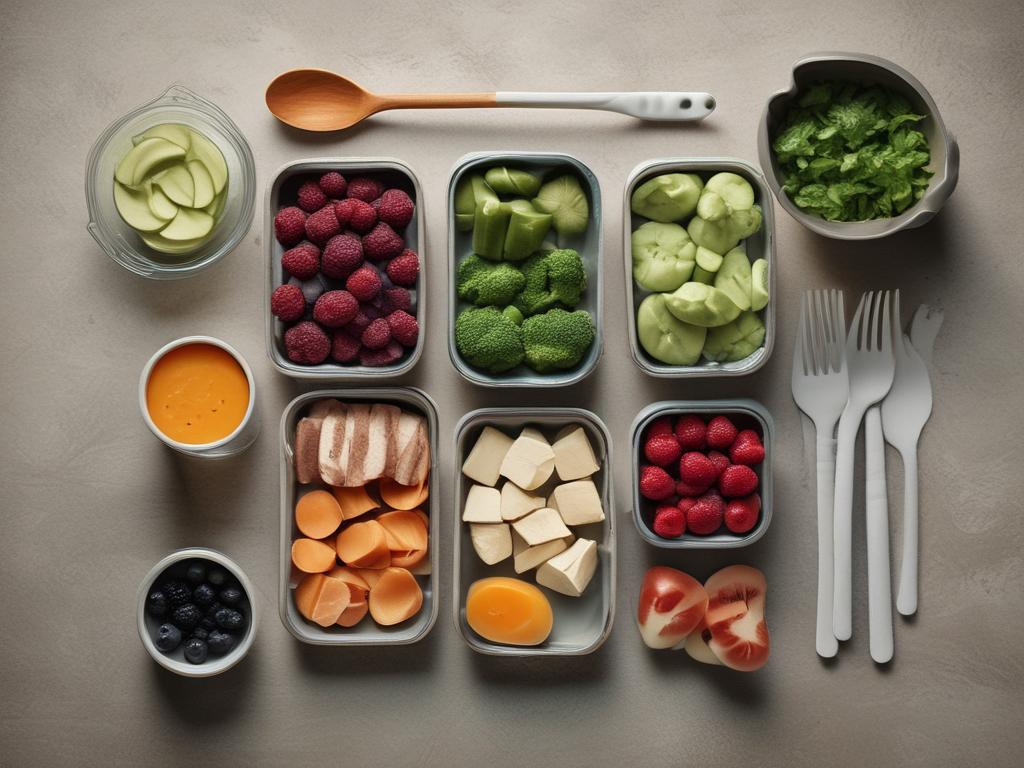
As we age, maintaining good nutrition becomes increasingly vital for overall health and wellbeing. Discovering easy meal prep strategies that cater to seniors' nutritional needs and preferences can make this task manageable and enjoyable. By focusing on nutrient-dense ingredients and simplified cooking methods, seniors can not only enjoy their meals but also support their physical and cognitive health. This blog post will guide you through meal prep tactics specially designed to meet the unique requirements of older adults, ensuring they receive the nourishment they need.
In addition to practical strategies, we’ll share easy and delicious recipes that cater to seniors' tastes and dietary restrictions. From hearty soups to flavorful grain bowls, each recipe prioritizes flavor and health, making it simple for seniors to enjoy satisfying meals. We’ll also provide essential tips for simplifying the meal prep process, helping seniors stay organized and motivated. With the right plan in place, meal prep can transform into an enjoyable routine rather than a daunting task, fostering greater independence and vitality in everyday life.
Discover nutritious meal prep strategies tailored for seniors' unique needs
Meal prep can be a game changer for seniors, helping to maintain a balanced diet while accommodating any dietary restrictions or health concerns. Begin by focusing on nutrient-dense foods that support overall health, such as leafy greens, whole grains, lean proteins, and healthy fats. Prioritize ingredients that provide essential vitamins and minerals, like calcium for bone health and fiber for heart health and digestion. Planning not only saves time but also ensures seniors have delicious, healthy meals readily available, reducing the temptation to opt for unhealthy convenience options.
Additionally, consider individual preferences and any specific health conditions that may influence food choices. Many seniors benefit from meals that are easy to chew and digest, so incorporating soft vegetables, cooked grains, and tender proteins can enhance their dining experience. Batch cooking is another effective strategy; prepare larger portions of meals and freeze them in single-serving containers for quick access. By being mindful of these factors, families and caregivers can create a meal prep routine that promotes vitality and supports seniors' dietary needs and preferences.
Easy and delicious recipes that cater to seniors' preferences
Crafting tasty meals that appeal to seniors' palate can enhance their dining experience while meeting their nutritional requirements. Consider preparing dishes with ingredients that are easier to chew and digest, like soft vegetables, grains, and lean proteins. Incorporate flavorful herbs and spices to amp up taste without relying on excessive salt or sugar. Recipes that include baked salmon with roasted sweet potatoes, or a quinoa salad packed with colorful vegetables, not only offer vibrant flavors but also deliver essential nutrients. You can adapt classic comfort foods, such as a hearty vegetable soup or a baked chicken casserole, to ensure they are both satisfying and nutritionally balanced.
To keep meals exciting, offer variety across the week and experiment with different cuisines. A simple stir-fry with tofu and broccoli, or an Italian pasta dish with lots of veggies, can introduce new tastes and textures. Plan for batch cooking, where you prepare larger quantities of a dish that can be frozen for later use. This not only saves time but ensures that seniors have wholesome meals ready to go. By prioritizing both flavor and nutrition, these easy recipes can help seniors enjoy healthy eating while sticking to their dietary preferences.
Essential tips for simplifying meal prep and staying motivated
Meal prep can feel overwhelming at first, but breaking it down into manageable steps makes it easier. Start by dedicating a specific day of the week to grocery shopping and meal preparation. Use a shopping list to focus on items that suit seniors' nutritional preferences, such as fruits, vegetables, whole grains, and lean proteins. Consider organizing the kitchen by designation, labeling containers for different types of food. This creates a system that simplifies the cooking process and makes it easy for seniors to find what they need. Utilizing tools like slow cookers or instant pots can also save time, allowing for one-pot meals that require minimal fuss.
Motivation plays a key role in maintaining a consistent meal prep routine. Encourage seniors to involve family members or friends in the process, turning meal prep into a social activity. Engaging cooking sessions can make preparation fun and enjoyable, while also providing opportunities for sharing recipes and taste testing. To keep things exciting, encourage seniors to explore new recipes or themes each week, such as Mediterranean week or comfort food week. Setting small, achievable goals—like trying one new recipe a week—can help maintain enthusiasm and improve confidence in the kitchen.